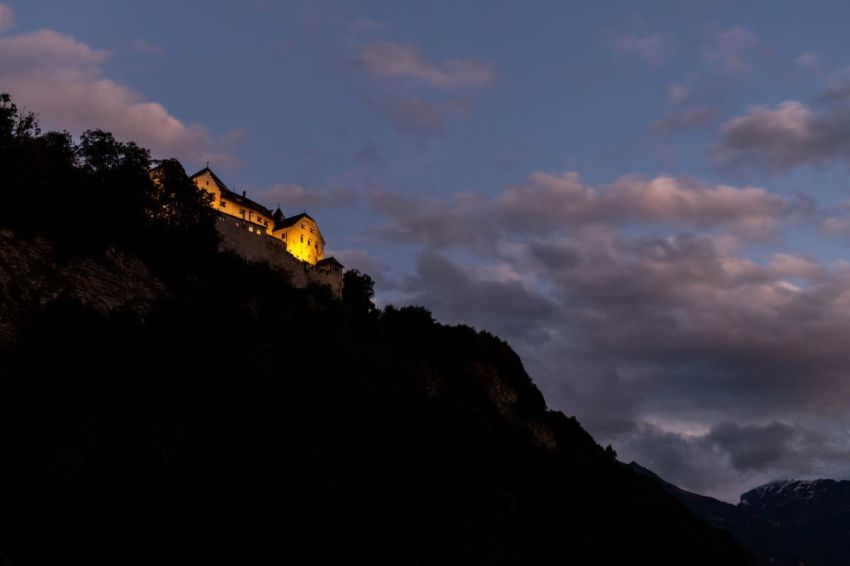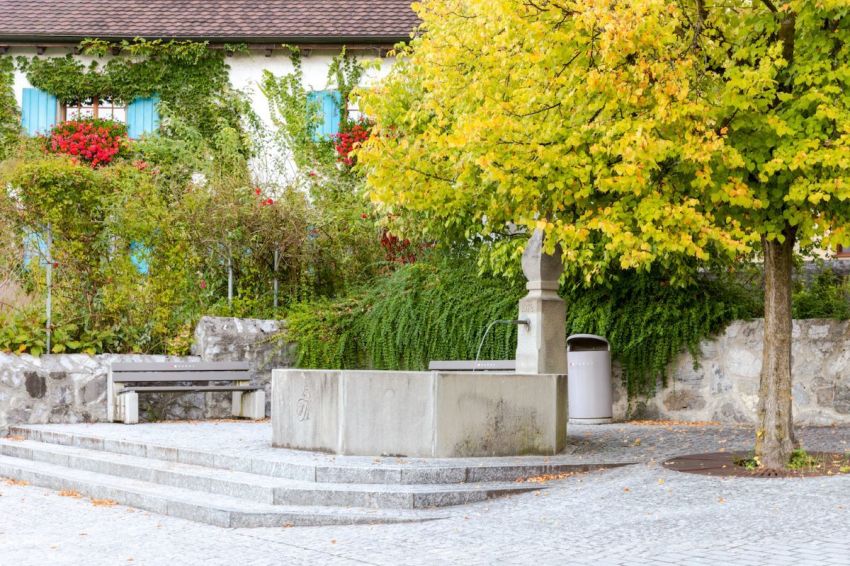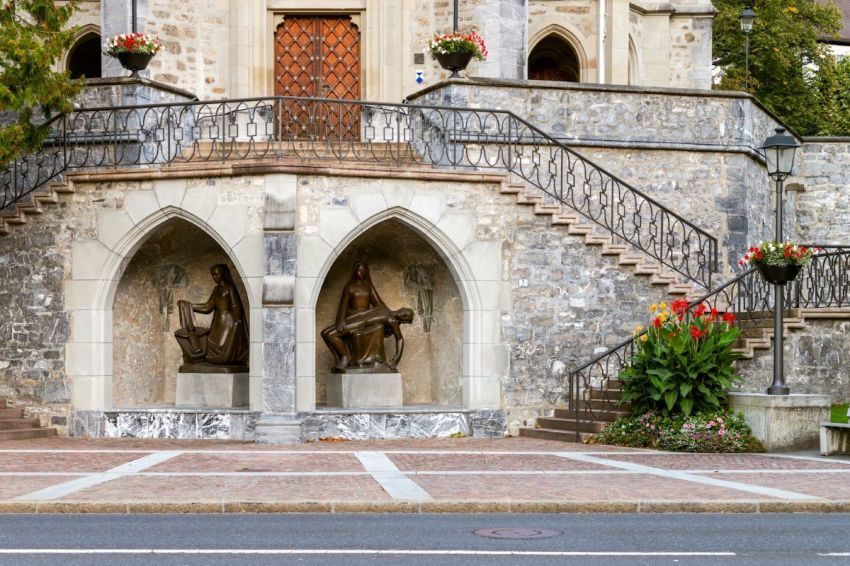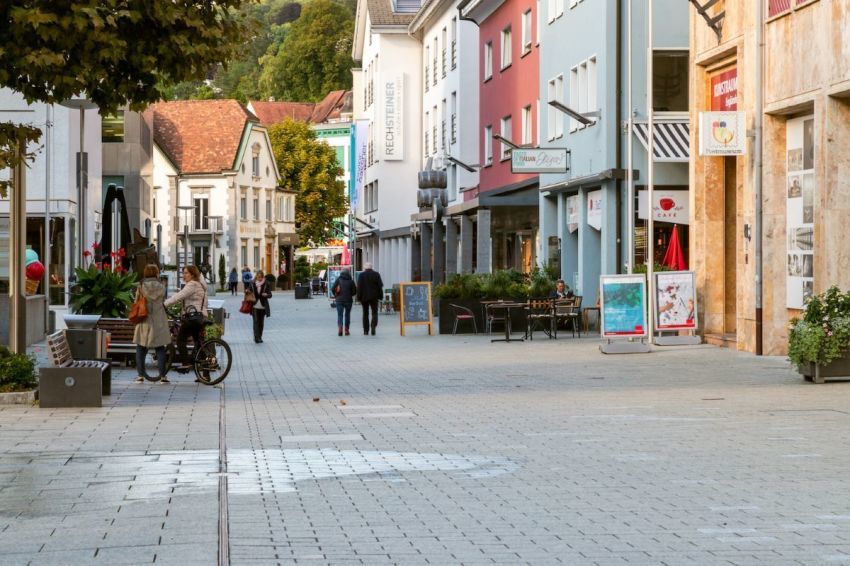Discovering a remnant of feudal Europe in Liechtenstein

Sandwiched in the Alps between Switzerland and Austria is the often-forgotten Principality of Liechtenstein.
The capital city of Vaduz, like the rest of the country, is located on the east bank of the Rhine — a river steeped in European history since antiquity.
Flash forward to today, and Liechtenstein holds the distinction of being the last remnant of medieval Europe. Back then, the continent’s map consisted of feudal states ruled by kings, princes, dukes and other assorted ranks of nobles.
The principality has remained as-is despite all of the other realms disappearing and the ruling family, known as the House of Liechtenstein, losing their once-extensive land holdings that stretched across central Europe and into the present-day Czech Republic.
Even the storied Holy Roman Empire — the empire the philosopher Voltaire once called neither holy nor Roman nor an empire — that ultimately gave Liechtenstein its sovereignty was dissolved in 1806.
It is remarkable that this small country exists, not least under the rule of a prince and with Roman Catholicism established by the Constitution.
While freedom of religion exists, the church of Rome, by and through the Archdiocese of Vaduz, is the state church. This means the prelate and priests have the same government employee status as the policeman and librarian. And yes, its size of 62 square miles and its population of just 38,700 souls makes it a small country by any measure.

As I learned over a three-night visit, Europe’s fourth-smallest country punches well above its weight.
Everything Americans want to see and do in the Old World can be found here. Think centuries of quaint history, castles, royalty, churches, museums, vastly underrated wine and year-round outdoor recreation and activities among mountains that reach 8,526 feet in elevation.
I stayed in the heart of Vaduz at Hotel Vaduzerhof, which has modern rooms with balconies facing Vaduz Castle, the capital’s namesake.
Perched on a hill about 400 feet above town is the home of the royals in the princely family. Unlike the palaces of other European crowned heads that allow some form of public access, the castle is entirely a private residence.
Liechtensteiners repeatedly told me that Prince Hans-Adam II and his heir, Prince Alois, who reigns as the regent of His Serene Highness, tightly guard their privacy. With no army since 1868 and crime relatively rare, no guard is mounted at the gates. There also isn’t a sentry outside the sleek modern building containing the Landtag, as the parliament is called. Presumably, the Instagram set is disappointed at the lack of a changing of the guard photo opportunity.

While unable to enjoy views from the castle’s ramparts, the marked walking paths connecting Vaduz and the castle offer equally spectacular views of the Rhine Valley. Looking past the Alps, I saw a stately church spire and the vineyards of Liechtenstein’s little-known
wine industry, which produces superb pinot noir, riesling, pinot blanc and chardonnay.
The spire is that of St. Florin’s Cathedral, a late 19th-century Gothic revival edifice that serves as the seat of the Roman Catholic archbishop.
Vaduz’s cathedral has an impressive interior that includes some wonderful examples of modern stained glass and a royal box perched above the quire and altar used by the princely family, who I am told are regular churchgoers. At street level beneath the west front are two sculptures by Hans von Matt that depict Mary at the birth and death of Jesus.
Given its small size and limited number of hotel rooms, Liechtenstein will surely remain a best-kept secret for the foreseeable future. So much so that you may be the only tourist walking the streets of Vaduz after 5 o’clock on any given Saturday. And for me, that is exactly the experience I want.
If you go
Not only is Liechtenstein landlocked, but there is no airport. The closest major international airport is 83 miles away in Zurich, Switzerland. Switzerland’s flag carrier, Swiss, flies nonstop between Zurich and several U.S. airports, including Boston, Chicago, New York and Washington.
From Zurich, a rental car is the easiest way to get to and from Liechtenstein. Just be sure to book something with built-in navigation to avoid the expensive roaming charges that result from using your phone for driving directions.
While indisputably a sovereign state, Liechtenstein enjoys a special relationship with Switzerland that goes beyond using the Swiss franc. Next year, the two countries will celebrate the centenary of a full customs union.

The hotel where I stayed, Hotel Vaduzerhof, has automated most of its guest-facing services. This includes replacing the front desk with a kiosk for check-in and check-out. Breakfast and self-parking are free for all guests.
Recommended restaurants include New Castle Restaurant, Brasserie Burg and the Café in the Art Museum (Café im Kunstmuseum). Just be aware that Liechtenstein still allows smoking inside establishments.
The tourist information center on Vaduz’s main street is the best place to go for maps and other basic information. It also has a gift shop with assorted souvenirs as well as locally produced food and wine. Besides buying the three-day Adventure Pass for about $35 per adult, you can get the highly coveted Liechtenstein passport stamp for a nominal charge.
Dennis Lennox writes a travel column for The Christian Post.
Dennis Lennox writes about travel, politics and religious affairs. He has been published in the Financial Times, Independent, The Detroit News, Toronto Sun and other publications. Follow @dennislennox on Twitter.



























